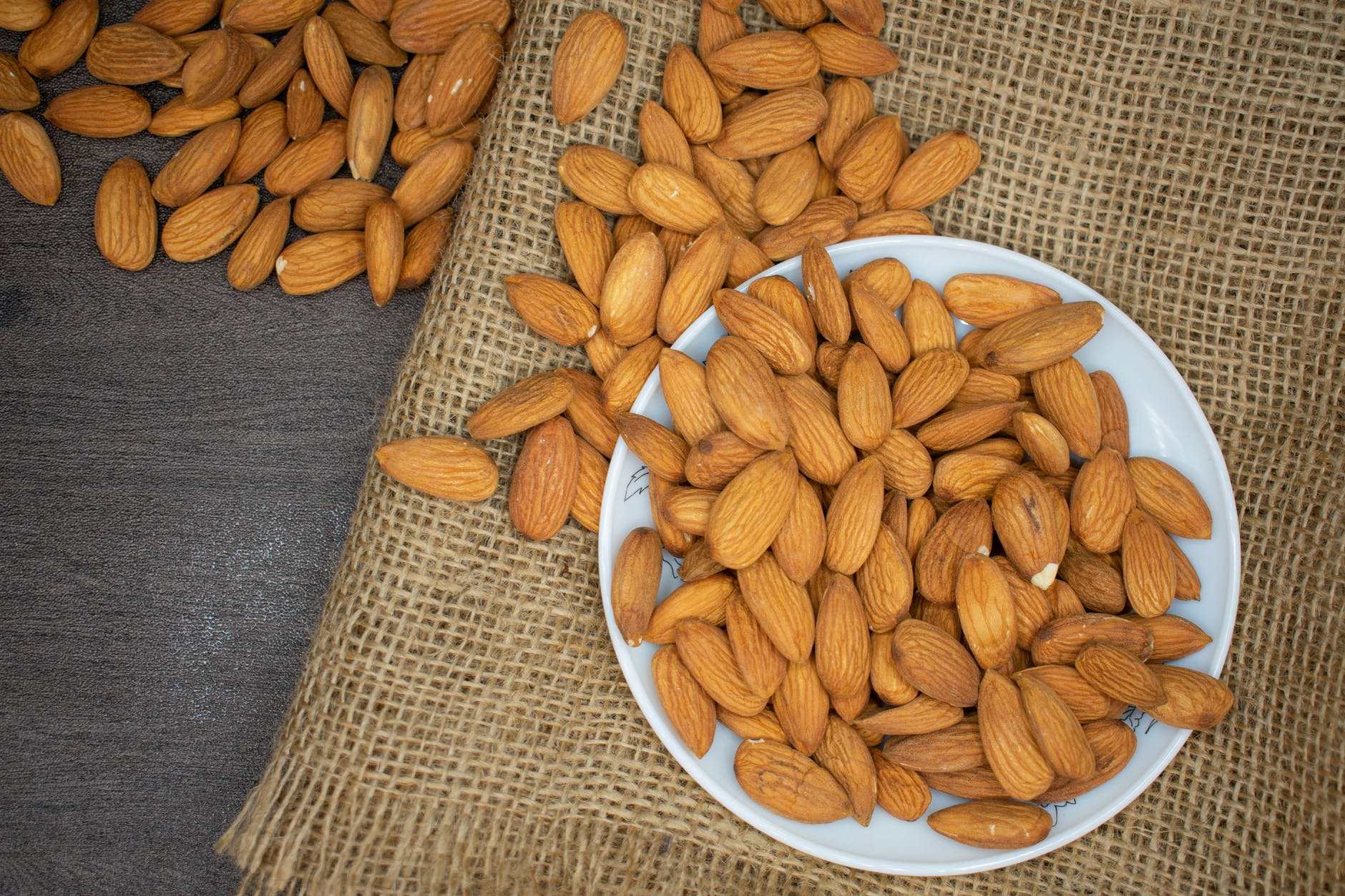Sleeping well is incredibly important to your overall health. So, it is necessary to have a proper routine of sleep. To help yourself have a proper sleep below are the best foods to eat before going to bed.
It can decrease the risk of developing certain chronic diseases, keep the brain, and digestion healthy and strengthen the immune system.
In general, it is recommended to sleep 7 to 9 hours continuously every night, although many people fight to get enough
There are numerous strategies you can use to promote good sleep, including changes in your diet, as nearly foods have sleep-promoting properties.
Here are the five best foods you can eat before bed to help you improve the quality of your sleep.
Table of Contents
1. Almonds

Almonds are a kind of tree nut with several health benefits.
They are a brilliant source of many nutrients, as an ounce contains 14% of your daily phosphorus, 32% manganese, and 17% riboflavin needs.
Eating almonds regularly is also associated with a lower risk of some chronic diseases such as type 2 diabetes and heart disease. This attributes to the content of monounsaturated fats, fiber, and healthy antioxidants.
It has suggested that almonds can also help improve sleep quality.
It is because almonds, sideways with several other types of walnuts, are a source of the sleep-regulating hormone melatonin.
The Almonds are also an outstanding source of magnesium and cover 19% of your daily needs in just 1 ounce. Consuming sufficient amounts of magnesium can help improve sleep quality, especially for insomnia.
Magnesium believes to be due to its ability to reduce inflammation in promoting sleep. Also, it can help lower the level of the stress hormone cortisol, which is known to disrupt sleep.
Still, research on almonds and sleep is sparse.
A study examined the effects of feeding rats with 400 mg of almond extract. He found that rats slept more tightly than before without consuming almond extract.
The potential effects of tonsils that promote sleep promising, but more extensive humanoid studies are needed.
If you need to eat almonds before bed to determine if they affect the quality of your sleep, a serving of 1 gram (28 grams) or about a handful should be sufficient.
2. Turkey
Turkey is delicious and nutritious.
It is rich in protein and provides 4 grams per ounce (28 grams). Protein is important for keeping muscles healthy and regulating appetite.
Turkey is also a good source of vitamins and minerals. A 28-gram serving contains 5% of your daily riboflavin, 5% phosphorus, and 9% selenium requirements.
Many people claim that turkey is an excellent bedtime meal because of its ability to promote drowsiness, although no study has individually looked at its role in sleep.
However, turkey does have some properties that explain why some people may tire after eating. Above all, it contains the amino acid tryptophan, which increases the production of the hormone melatonin that regulates sleep.
Protein in Turkey may also donate to its ability to promote fatigue. There is an indication that is consuming moderate amounts of protein before bedtime is associated with better sleep quality, including less waking up at night.
More research is needed to confirm Turkey’s potential role in improving sleep.
However, it may be worth eating a turkey before bed, especially if you’re having trouble falling asleep.
3. Chamomile tea

Chamomile tea is a general herbal tea that can offer a variety of health benefits.
It is known for its flavon content, a class of antioxidants that decrease inflammation that often leads to chronic viruses such as cancer and heart disease.
There is also evidence that drinking chamomile tea can boost your immune system, reduce anxiety and depression, and improve skin health. Chamomile tea also has some unique properties that can enhance the quality of sleep.
Chamomile tea, in particular, contains apigenin, an antioxidant that binds to specific receptors in your brain that can promote drowsiness and reduce insomnia.
A study of 34 adults found that those who consumed 270 mg of chamomile extract twice a day for 28 days slept 15 minutes faster and woke up less at night than those who did not drink the extract.
Another study found that women who consumed chamomile tea for two weeks reported better sleep quality than women who did not drink tea.
Those who drank chamomile tea also had less symptoms of depression, which is often associated with sleep problems.
Chamomile tea is worth trying before going to bed if you want to improve the quality of your sleep.
4. Kiwi

Kiwi is a low-calorie and highly nutritious fruit.
A medium kiwi covers only 50 calories and a significant amount of nutrients, including 117% of daily vitamin C needs and 38% of vitamin K.
It also contains a decent amount of potassium and folic acid, as well as various trace elements.
Additionally, eating kiwi can benefit your digestive health, reduce inflammation, and lower cholesterol. These effects are due to the high levels of fiber and carotenoid antioxidants they provide.
Studies of its potential to improve sleep quality have also shown that kiwi may one of the best foods to eat before bed.
In a four-week study, 24 adults used up two kiwis an hour before bed. At the end of the work, participants fell asleep 42% faster than if they had not eaten before bed.
Additionally, their ability to sleep through the night without waking up improved by 5%, while their total sleep time increased by 13%.
The sleep-promoting effects of kiwi believed to be due to its levels of serotonin, a brain chemical that helps regulate your sleep cycle.
Antioxidants in kiwi like vitamin C and carotenoids have also suggested being partly responsible for their sleep-promoting effects. It believes to be due to its role in reducing inflammation.
More scientific knowledge needs to determine the effects of kiwi on improving sleep. However, if you eat 1–2 medium kiwis before bed, you can fall asleep faster and fall asleep longer.
5. Fatty Fish

Fatty fish like tuna, trout, salmon, and mackerel are incredibly healthy.
What varieties them unique is their exclusive vitamin D content. For sample, a 100 gram serving of salmon contains 525–990 IU vitamin D, which is more than 50% of your daily requirement.
Also, oily fish rich in healthy omega-3 fatty acids, especially EPA and DHA, both of which known to reduce inflammation. Omega-3 fatty acids can also protect against heart disease and improve brain health.
The mix combo of omega-3 fatty acids and vitamin D in oily fish can improve sleep quality, as together have shown to increase the production of serotonin, a brain chemical that promotes sleep.
In one study case, men who ate 300 grams of Atlantic salmon three times a week for six months fell asleep about 10 minutes faster than men who ate chicken, beef, or pork.
This effect was supposed to be due to the salmon vitamin D content. Those in the fish group had higher vitamin D levels, which associats with a significant improvement in sleep quality.
Eating a few ounces of oily fish before bed can help you fall asleep faster and sleep better. However, more studies need to come to a definitive conclusion about the ability of oily fish to improve sleep.
Other foods that can Promote Sleep.
Some other foods have sleep-promoting properties but have not explicitly studied for their things on sleep.
Milk: Another known basis of tryptophan, milk, has exposed to improve sleep in older people, especially when taken with melatonin and combined with exercise.
Bananas: Bananas hold tryptophan and are a decent source of magnesium. Both properties can help you sleep well.
Oatmeal: Similar to rice, oatmeal is rich in carbohydrates and has reported causing drowsiness when consumed before bed. Oatmeal is also a known source of melatonin.
Cottage cheese: Contains a requisite amount of casein, a milk protein known to support muscle repair and growth at night when consumed at bedtime.
Also walnuts, passionflower tea, white rice, and spicy cherry juice.
Conclusion
Getting enough sleep is very important for your health.
Fortunately, various foods can help as they contain sleep-regulating hormones and brain chemicals like melatonin and serotonin.
Besides, some foods contain large amounts of specific antioxidants and nutrients such as magnesium, which known to improve sleep by helping you fall asleep faster or fall asleep longer.
To take advantage of sleep-promoting foods, it may be best to consume them 2-3 hours before bed. This is because eating just before bedtime can cause digestive problems like acid reflux.
In general, further study needs to determine the specific role that foods play in promoting sleep. However, the known effects are promising.


